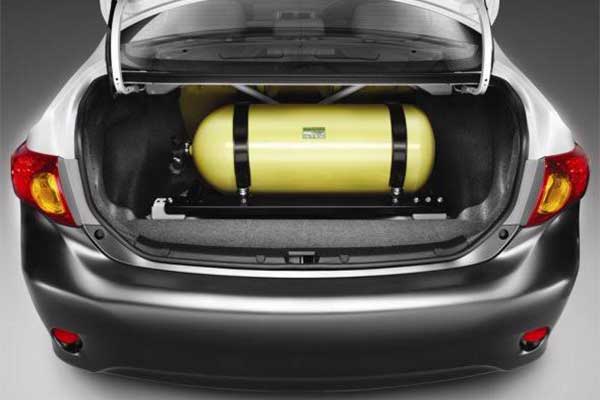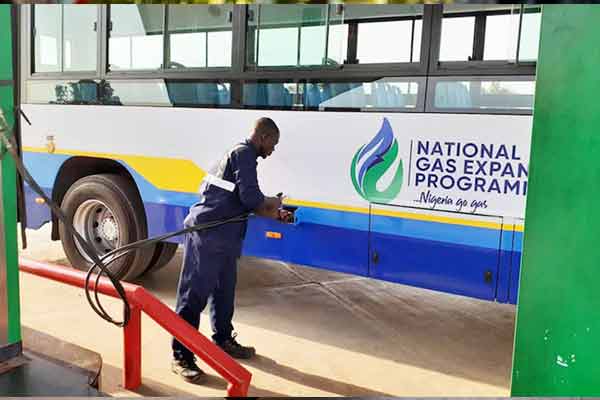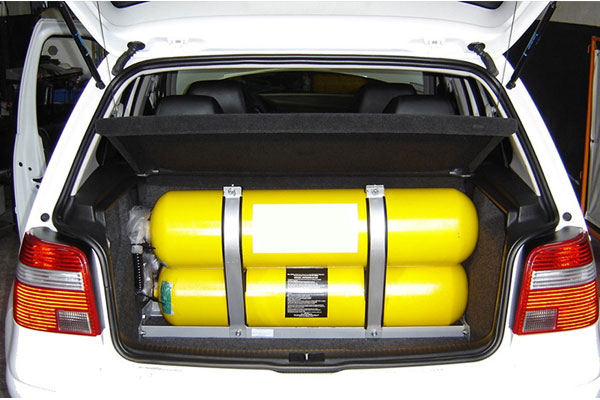
The lack of an active industry that converts petrol or diesel vehicles to gas powered vehicles might frustrate the core mandate of the Nigerian Gas Expansion Programme (NGEP).
One of the downstream operators, Quest Oil & Engineering Services Limited, stated that many private sector investment seeking interest in the conversion of vehicles and other machinery would remain idle due to lack of vehicles that would utilise gas for the programme to succeed.
The Group Chief Executive Officer, Quest Oil & Engineering Limited, Goke Dele, at a press briefing, said it was as a result of this that the company is keying into the Federal Government’s gas expansion programmes by investing in the gas space and leveraging the value chain to set up a 10,000 metric tonnes gas storage facility in Oghara, Delta State, scalable to 15,000 metric tonnes.
He said the Group is also setting up its first composite cylinder manufacturing plant in Lekki. He said: “There has to be an active conversion industry for that plan to take off, but for us as company, the low hanging fruit is the gas to power initiative. Presently there is gas, but where there is gas, you will find lots of challenges, which include, slow development of gas infrastructure, vandalism, banditry, pricing and government’s preference to export gas. The government needs to balance all of this for the NGEP to achieve its core mandate”.

While lauding the NGEP, he said the scheme would bring huge economic benefits to the country, while also reducing Nigeria’s dependence on the importation of fuel, which it currently subsidises with scare foreign exchange.
“Right now, we have very few companies with the technology to convert and we need about 500 companies with this technology and it would generate employment for the country, which we are also looking into the direction as we believe that investment will also, be of benefit to us as a company and the country at large”.
He also revealed plans for major investments in the Nigerian oil and gas sector, stressing that the move comes as stakeholders in the oil and gas industry have expressed optimism that the Petroleum Industry Act (PIA) would unlock investments in the sector.
According to Dele, the prospects for the industry is a mixed bag, saying that on one hand, the industry has been starved of key investments in the last decade, while on the other hand, there have not been enough incentives in terms of fiscal framework to galvanize the needed investment.

“Thankfully, with the presidential assent to the PIB, the world will finally take notice of our industry once again. Following the acquisition of Ascon Oil Company Limited, (the first private bulk white Petroleum products storage, sales, and distribution channel) in 2019, Quest aims to deepen its footprint in the downstream sector as it sees a major boost in its operations by the first quarter 2022. The acquisition led to the ongoing overhauling, restructuring and rebranding of ASCON to Quest,” he explained.
He noted that the move falls under its initial goal of integrating all of its offerings under the Quest umbrella while providing the best petroleum products.
Speaking on the impact of COVID-19 on the oil and gas industry, the Chief Executive Officer said the impact is yet to wear out, given that the third wave is still at large.
The firm’s General Manager, Business Operations, Dr. Ochuwa George, while speaking during its Health & Safety Week 2021 themed ‘Safety and Health – The Heart of the Future of work’, said the company’s safety architecture is a demonstration of its goal to sustain and build on its track record of zero-fatality in the past decade.

 News1 week ago
News1 week ago
 News1 week ago
News1 week ago
 News1 week ago
News1 week ago
 News4 days ago
News4 days ago
 News1 week ago
News1 week ago
 Latest Cars1 week ago
Latest Cars1 week ago
 News1 week ago
News1 week ago
 News1 week ago
News1 week ago




